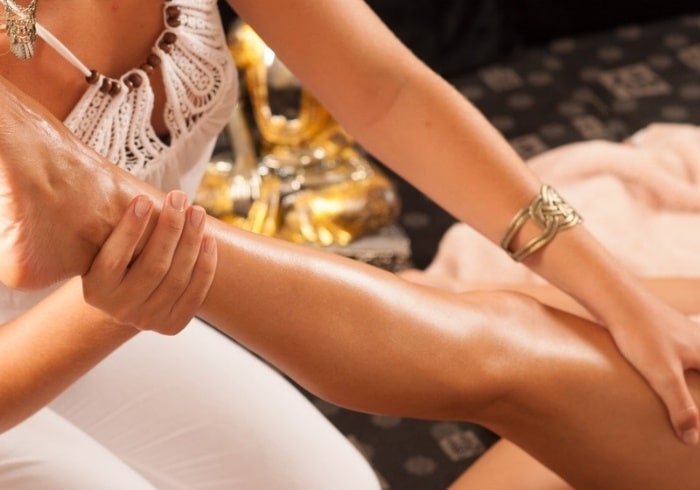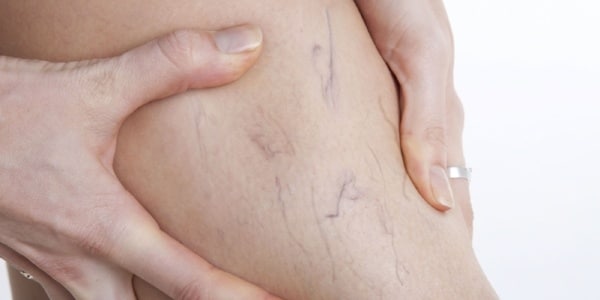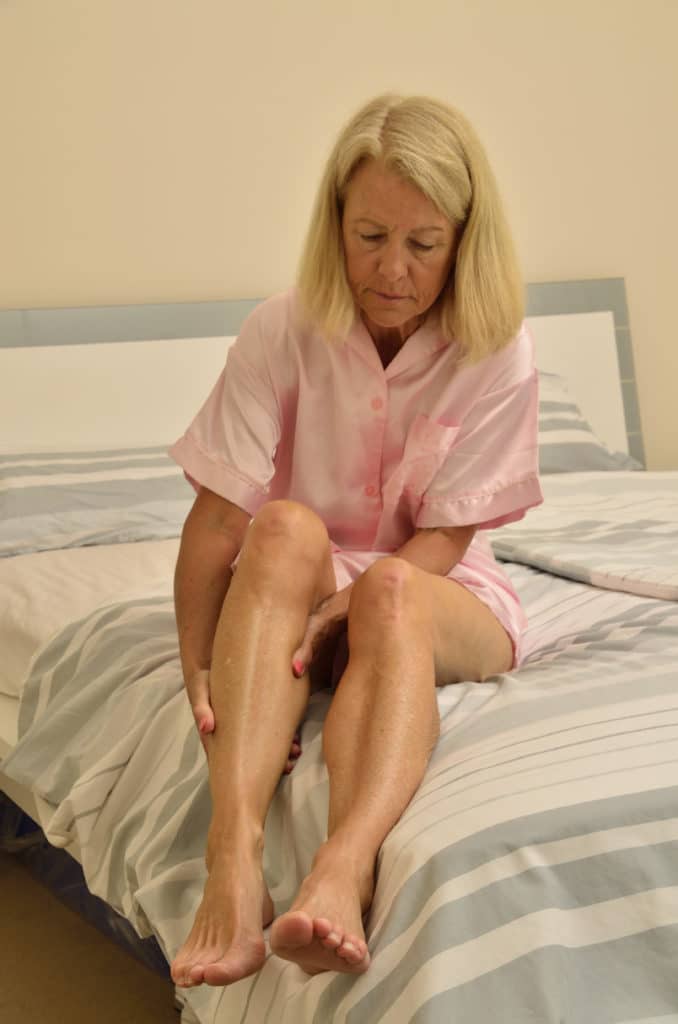Common Symptoms of CVI – Should you be concerned?

The concern about having or developing Chronic Venous Insufficiency (CVI) is a great reason to have your varicose veins fully assessed by a qualified Vein Specialist.
Why should I be concerned about the symptoms of Chronic Veins Insufficiency?
Chronic Venous Insufficiency, also known as Venous Reflux Disease or Venous Stasis, refers to a condition of inadequate blood flow from the legs back to the heart. In healthy veins, blood pressure and muscle movement move blood out of the legs and upwards; one-way valves prevent back-flow of blood between heart beats. When those valves become weak, veins become distended and blood pools in the lower legs. This can lead to Chronic Venous Insufficiency. While CVI is not usually lethal, its symptoms can significantly diminish your quality of life.
What are the most common symptoms of Chronic Venous Insufficiency?
If you experience any of these symptoms, consider getting a full vascular health evaluation from a qualified Vein Specialist to determine what can be done to improve your quality of life.
- Varicose and spider veins
- Swelling of the legs and ankles
- Skin color changes over the legs and ankles
- Sores on the legs (ulcers), especially those that are slow to heal
- Aching legs
- Heavy legs
- Burning, throbbing in the legs
- Muscle cramps
- Leg fatigue
- Bleeding veins
- Itching over veins
- Restless legs
- Leg pain after sitting or standing long periods
Who is at risk of developing the symptoms of Chronic Venous Insufficiency?
There are a number of reasons that venous valves become weaker, and family history tops the list. If other members of your family have CVI, you have a much higher chance of developing this condition. Other factors include:
- Age. Vessel walls get weaker over time.
- Hormonal factors. Hormonal imbalances and fluctuations affect vessel wall integrity.
- Pregnancy. Hormonal fluctuations and the physical pressures of pregnancy are both factors.
- Trauma and other injury to the legs. Scar tissue can also impair blood flow.
- Deep Vein Thrombosis. These are clots that form in the deep venous system and impede blood flow.
There are lifestyle factors, as well, that can increase your chances of developing CVI. Any repeated activity (or inactivity) that impedes or slows blood movement in the body will impair your vascular health, including:
- Standing or sitting for long periods. Gravity can take a toll, and blood moves better when the body is moving.
- Obesity. It takes a lot of physical resources to support increased fat tissue.
- Smoking. Not only does smoking decrease the amount of oxygen that is taken in by the body, its long-term effects include a buildup of plaque and decreased flexibility in the vessel walls.
- Hypertension. High blood pressure can also contribute to a decrease in blood vessel wall flexibility.
- Lack of physical activity. Blood moves better when the body is moving.
Treatment for the symptoms
While there is no cure, there are a number of minimally invasive procedures available that will improve vascular sufficiency, and provide relief from CVI symptoms. Read more about them by clicking on the links.
- Medical Adhesive (Veneseal Closure System)
- Laser Treatment (Endovenous Laser Treatment (EVLT)
- Radio Frequency Ablation (ClosureFast Radiofrequency Procedure)
- Liquid Sclerotherapy and Compression (chemical injection)
A board certified Vein Specialist can provide you with a full vascular exam and Duplex Ultrasound.These tools will measure the blood flow returning to the heart, assess your overall vein health, and allow for the creation of a treatment plan tailored to your specific needs.
You were concerned that your varicose veins might be a symptom of chronic venous insufficiency or other blood circulation problems beneath the surface, so you consulted your qualified vein specialist. Together, you decided on your best varicose vein treatment, and you are committed to doing all that has been prescribed for your aftercare. What you…
Read MoreHere is the thing: you could have varicose veins and not even realize it. While we associate the term varicose veins with the really obvious blue and twisty bulges that make our legs look like road maps, this is not always the case. Varicose veins occur when the valves in the veins—designed to prevent the…
Read MoreUsted podría estar pensando que sus varices son sólo un problema cosmético, pero podrían ser una señal de que su salud vascular está comprometido. Si ese es el caso, y si usted está sufriendo de insuficiencia venosa (CVI), es casi seguro que su proveedor de beneficios de salud cubrirá la mayoría si no todos los…
Read MoreYou might be thinking that your varicose veins are just a cosmetic issue, but they could be a sign that your vascular health is compromised. If that is the case, and if you are suffering from venous insufficiency (CVI), it is almost certain that your health benefits provider will cover most if not all of the…
Read MoreDoes massage help varicose veins? You might be thinking that massage is a great way to deal with the ache and pain of varicose veins. It seems like it would make sense. Massage therapy is great for improving muscle tone, blood circulation, general relaxation, and overall tissue health. All of these things are important for…
Read MoreThere are a lot of myths and misconceptions when it comes to spider veins. So we asked Jilanne Rose, DPN, ANP-C, a top Metro Phoenix Vein Specialist, to dispel some of the more frequent misconceptions surrounding the cause, risk factors, and treatment of this common vein condition. Myth #1: Spider Veins are Only Cosmetic Many people…
Read MoreJilanne Rose, ANP-C, and Clinical Director at the Advanced Vein Institute of Arizona has been asked to speak at the “Your Health Matters” Seminar on Thursday, January 26th at 10am. The seminar is being hosted by Generations Senior Living in Gilbert Arizona.
Read MoreIf you think that your varicose veins hurt more at night, you are probably not imagining this. The reason why, in a word, is contrast. This might make more sense once it is explained… Especially since the advent of electrical lights, it can be easy to forget that nighttime is for rest. As daylight…
Read MoreAs a smart consumer and advocate for your own health, you have likely done your research about the variety of varicose vein treatments available, and you have probably noticed that vein procedure success rates are hard to find. Some try. There are statistics tucked into difficult-to-read research abstracts and surveys. Some reports contradict others. Others…
Read MoreIf you worry that getting a second opinion on your varicose vein treatment is rude or disrespectful—don’t! Any reputable health professional will tell you that consulting with more than one health specialist is a smart thing to do. Here are a few reasons why that is… Ensuring a proper diagnosis will reduce anxiety…
Read More


